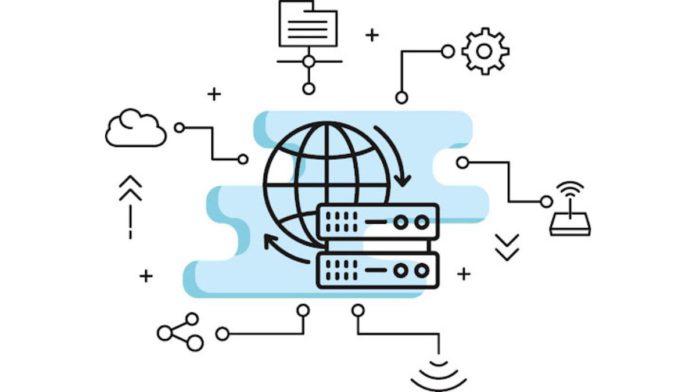If you’re aware that the Internet is not safe and that it can be tough to protect your private data when surfing the Internet, you’re in the right place. The ideal way to protect your online safety is to set up an efficient solution like proxies or VPNs.
However, people are typically confused about the differences between these two tools. Even though both services can provide you anonymity, safety, and security, they still have different uses and advantages.
That’s why we’ve decided to help you choose the solution that fits your needs by listing the main differences between VPNs and proxies.
Introduction to proxies
Just imagine that between your computer and the server exists another intermediary service. That intermediary computer between online resources and the end-user is a proxy server. A proxy acts as a third-party tool that manages Internet traffic between protocols and networks.
There are a lot of proxy servers that have different levels of privacy, security features, and functionality. They are either private or public, and their functionality and privacy level depend on whether you opt for a public or private solution.
Proxies transfer your request to a particular website. Before you get the required results, the requested information again travels through a proxy server before it reaches your computer to double-check if the requested information is safe and secure.
Benefits of using proxies
Here are some benefits that most proxy servers provide.
Improved speed
Most proxies cache the website data, so once you visit a certain page, your proxy solution immediately stores the important data making it quicker and less complicated to revisit the same page.
Anonymity
The primary function of proxies is to provide anonymity so that you don’t need to worry about hackers tracking you online. Proxies can hide, rotate, or change your IP address which means your data is safe for every request you make online.
Filtered content
Malicious pages, messages, and spam emails are unavoidable when browsing the web. Using a proxy means the malicious content can’t reach you without passing through a proxy server first. This way, proxies can prevent malware from harming your device and valuable data.
Passing geoblocking restrictions
Websites typically restrict content to users from different geographical locations for many reasons. However, a proxy can pass through those restrictions and provide you access to all content on the web. For example, using a UK proxy from China can allow you access to all UK sites you’re interested in visiting. Click here to read more about the UK proxy and how it can help you.
Introduction to VPN
VPN or Private Virtual Network is what the name itself suggests – a private network that establishes a secure bridge between the server and user. Simply put, VPN provides secure web surfing by creating a virtual tunnel that protects your data from external influences and hackers.
This solution provides authentication and integrity protection, and it can encrypt the data you’re sharing through the web and make it hard to compromise in any way. In other words, you can prevent cyber criminals from compromising sensitive data like confidential business materials or bank account numbers by using VPN services.
Benefits of using VPN
Here are some noticeable benefits of using a VPN tool.
Online security
VPN is not only suitable for hiding your IP address. This tool can also encrypt the data you share online, making it safe and unreadable to cybercriminals and hackers. It hides your online identity, encrypts sensitive data, and improves your online security.
ISP protection
Believe it or not, there are reasons to protect your data, even from your Internet Service Providers. Your ISP is allowed to share and sell your data to the government and even to other companies. One of the ways to prevent that is by setting up a VPN solution.
For accessing blocked content
Like proxies, VPNs allow you access to restricted online content and protect sensitive data while downloading and surfing.
Differences between VPN and Proxy
Even though they both work to protect your safety, VPNs and proxies are not the same tools. Here are the main differences between these solutions:
- Proxies work on an application-level principle, so they can only reroute the data of a specific browser or app;
- VPNs, on the other side, encrypt your data on the operating system level;
- VPNs are slower than proxies since they need time to finish the data encryption;
- Proxies can allow you quicker access to restricted websites – a UK proxy can provide people outside the UK with quicker access to restricted content;
- Unlike proxy servers, free VPN solutions usually have limited features;
- Proxies are a better solution for small-business owners;
- VPN connections frequently drop, and proxies might be a more reliable solution.
Conclusion
No matter which solution suits you better, go for legit service providers. Free-to-download tools are typically limited in features and unreliable. We hope that now you understand the main differences between these tools and that you can determine which solution is better for your needs.


